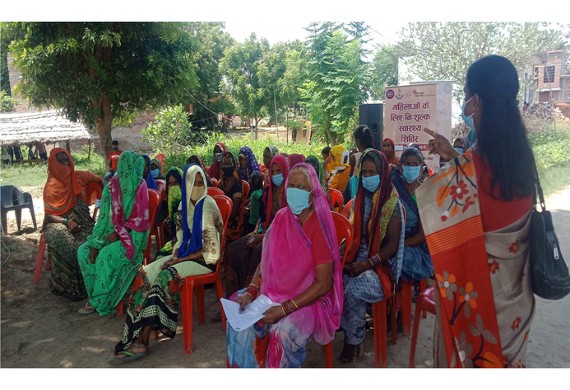
AstraZeneca & BHU Collaboration holds Cancer Screening Camp for Women in Varanasi
By: WE Staff | Monday, 9 August 2021
AstraZeneca India (AstraZeneca Pharma India Limited), a leading science-led biopharmaceutical company, collaborated with Banaras Hindu University (BHU) to hold a cancer screening camp for women in Varanasi.
It is the second such camp to be established in and around Varanasi as part of the Ganga Godavari cancer screening programme, which began in March 2021.
The programme aims to raise awareness about the importance of early detection of oral, breast, and cervical cancers in women, as well as to facilitate detection of these cancers at this specialised screening camp.
More than 100 women were screened at a camp two days ago, and five suspected cases were referred for further evaluation, according to Dr. Amita Yadav, AstraZeneca Pharma CSR Lead, in a press release.
The current phase of the programme, which began in March 2021, is being carried out in Varanasi, Uttar Pradesh, in collaboration with the NHM and the Ministry of Health and Family Welfare (MoHFW).
The department of community medicine at the BHU Institute of Medical Sciences serves as the program's nodal agency. An expert team of medical professionals from the departments of obstetrics and gynaecology, general surgery, and dentistry provided screening services at Tikri's health and wellness centre.
In March 2021, more than 300 women attended a cancer screening camp in Varanasi. According to the press release, up to 15 women were referred to tertiary care hospitals for further treatment.
The programme was initially implemented in Maharashtra, Tamil Nadu, and Karnataka. More than 76 camps have been held so far as part of the Ganga Godavari Initiative.
Commenting on this, Dr. Anil Kukreja, vice president – medical affairs & regulatory, AstraZeneca India, said, “With regards to cancer and its treatment, early diagnosis is key. Many types of cancers, if diagnosed early, can be treated with curative intent with the help of modern medicine. As more women are affected with cancers in India, it is imperative that we conduct enough effective and consistent programs, especially in rural parts of the country, such as the Ganga Godavari Cancer Screening Programme enabling greater access to quality healthcare. Through this program, we have already touched the lives of more than 4,500 individuals and resulted in the early identification of more than 160 patients that were referred for further treatment in effective disease management.”
According to statistics, approximately 1.22 lakh and 1.44 lakh new cases of cervical and breast cancer are diagnosed in India each year. According to the World Health Organization, India accounts for nearly one-third of global cervical cancer deaths, with women facing a 1.6% cumulative risk of developing cervical cancer and a 1% cumulative risk of death from cervical cancer.
Similarly, the cumulative risk of developing breast cancer is 2.7%, and the cumulative risk of death is 1.5%. This high-incidence problem is exacerbated by the unfortunate situation of late detection and low awareness among the general public and even paramedic professionals.






